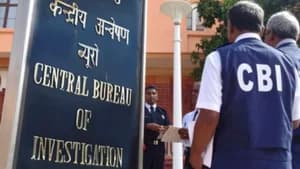The Supreme Court has clarified that a summoning order under Section 319 of the Code of Criminal Procedure (CrPC) cannot be quashed solely based on the alibi evidence of an additional accused. The Court emphasized that establishing guilt beyond a reasonable doubt is not necessary at the summoning stage. Instead, the presence of prima facie evidence indicating the involvement of the accused is sufficient.
“Indeed, it is difficult to conceive of what stronger material could be demanded at the summoning stage short of a confession. The threshold is not proof beyond reasonable doubt; it is the appearance of involvement which is apparent from evidence adduced in the proceeding.” — Supreme Court
Read also: Only 14 of 221 High Court Judges Appointed Since November 2022 Related to Judges: Supreme Court Data
The case was heard by a bench comprising Justices Vikram Nath and KV Viswanathan. It involved a complainant who challenged the Punjab and Haryana High Court’s decision to set aside the trial court’s order summoning Respondent No.2 as an additional accused in an abetment to suicide case.
Background of the Case:
- Trial Court's Decision: The trial court had summoned Respondent No.2 as an additional accused based on prima facie evidence of his involvement.
- High Court's Intervention: The Punjab and Haryana High Court quashed this order, arguing that the trial court had failed to consider the documentary evidence supporting the accused’s alibi.
- Supreme Court’s Verdict: The Supreme Court overturned the High Court’s decision, reinstating the trial court’s order and emphasizing that prima facie evidence is enough for summoning an accused under Section 319 CrPC.
Read also: Supreme Court Issues Notice in Six Appeals Challenging Acquittals in 1984 Anti-Sikh Riots Cases
The Supreme Court made it clear that the defence of alibi must be proven during the trial, not at the summoning stage. The Court stated:
“An alibi, however, is a plea in the nature of a defence; the burden to establish it rests squarely on the accused. Here, the documents relied upon, parking chit, chemist's receipt, OPD card, CCTV clip, have yet to be formally proved. Until that exercise is undertaken, they remain untested pieces of paper. To treat them as conclusive at the threshold would invert the established order of criminal proceedings, requiring the Court to pronounce upon a defence before the prosecution is allowed to lead its full evidence.” — Supreme Court
Read also: Supreme Court Issues Notice in Six Appeals Challenging Acquittals in 1984 Anti-Sikh Riots Cases
The Supreme Court concluded that since there was sufficient prima facie evidence requiring Respondent No.2’s presence in the trial, the trial court’s decision was justified. The appeal was allowed, and the trial court’s summoning order was restored.
Case Title: HARJINDER SINGH VERSUS THE STATE OF PUNJAB & ANR.
Appearance:
For Petitioner(s) : Ms. Pallavi Singh, Adv. Mr. G. Balaji, AOR
For Respondent(s) : Mr. Vivek Jain, D.A.G. Mr. Siddhant Sharma, AOR Mr. Chritarth Palli , AOR















